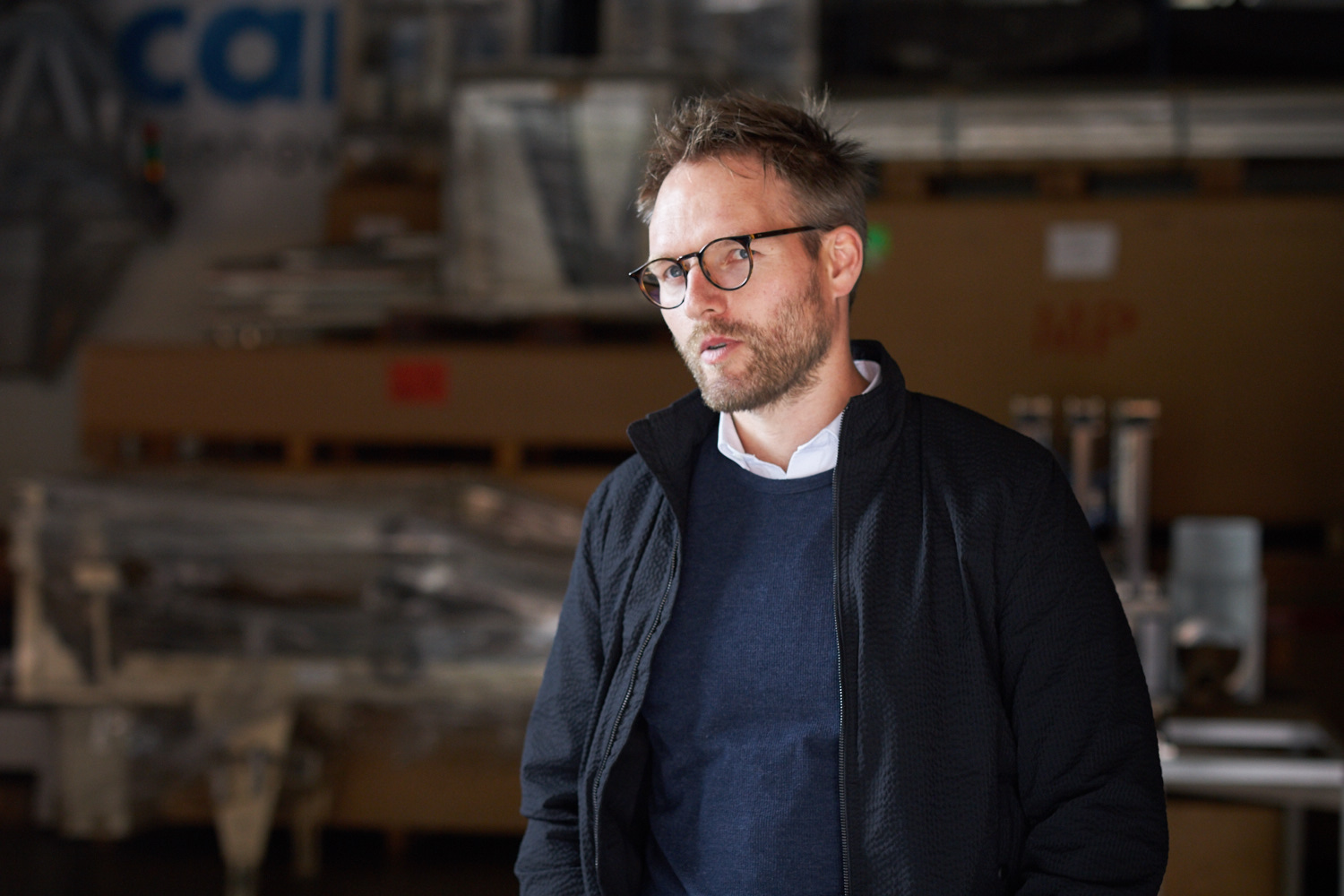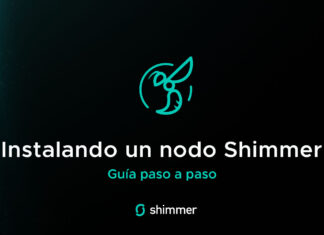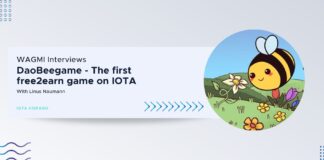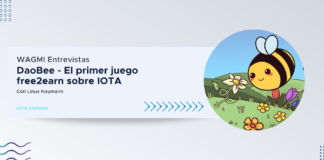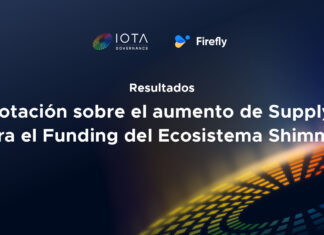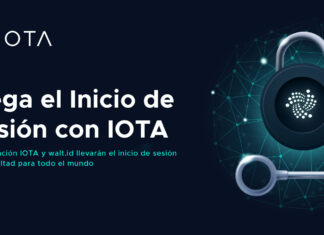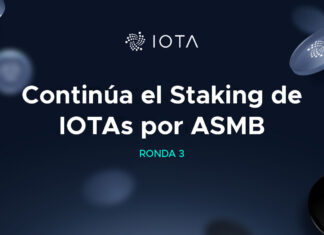
Martyn is a very active developer of the IOTA Ecosystem and his EDF Grant and Donation Tracking System allowed him to win in the first round of EDF Grantees. Let’s get to know him a bit!
Clato Martin
Writer & Editor, IOTA Hispano
If you like what we are doing help us to continue working! Donate: http://www.iotahispano.com/donate/
Tell us a little about your background.
I am a developer through and through and have been for 30 years. As a hobbyist back in the day and then through work experience at school I got my first taste of coding. In the early days I was lucky to have a mentor who taught me the fundamentals of coding, through book learning and with meticulous paper printed code reviews. Learning C and then C++ at such an early age grounded my skills in the fundamentals which I have used throughout my career.
I was coding commercial signal processing and data capture software before I went to university. While at university I gained degrees in Computer Science B.Sc. and Interactive Computing System Design M.Sc. and then went back into the commercial world.
Some 25 years ago and in the early days of the internet I worked on a very early IoT project (before it was called IoT). The project was implemented as a low-level protocol running over TCP/IP on both desktop PCs and on embedded devices. We could perform tasks which would automate/monitor a home/office on the other side of the world with great ease.
I have worked in a range of fields from embedded devices, document management, search, FX trading systems, home utilities and more. As you would suspect this has exposed me to a hugely diverse range of technologies, development stacks and programming languages and provided me with a wealth of knowledge.
From full time employee to CTO and everywhere in between I have had many roles, currently I call myself a contractor.
How was your first approach to cryptocurrency and Iota?
My first dealing with cryptocurrency was mining bitcoin around 7 years ago when the price was around $0.30, I was intrigued by the idea of creating value by just running an algorithm. I never looked deeper into the technology and eventually gave up on the mining, someday I will search for the hard disk with the BTC wallet on it.
I first read about IOTA early 2017 and was sceptical to say the least, as the year progressed, and I read more about the technology I garnered more of an interest. Ultimately, the fact that I was more interested in the technology and not just driven by the price lead me to believe that it had more future than other coins.
When did you start to work on IOTA related projects?
I had played with the iota.lib.js JavaScript library but wasn’t happy with the way it integrated into my OO workflow for developing apps. With this in mind, I dived straight in and started coding the Pico libraries. When they were published I was asked if I wanted the community developer role on Discord to which I agreed.
What is your relation with the Iota Foundation?
In terms of the foundation, I have mainly dealt with John Licciardello with regards to the Ecosystem development. Of course, I have spoken with other members of the team as part of the Grant Tracker development and deployment process, mainly through the private Slack channels. Keeping an eye on the other code repositories I have also contributed ideas, issues and fixes for some of the official libraries.
What is Iota.eco and what do you want to achieve with it?
I am from the UK, but last year as part of my partner’s job she was presented the opportunity to move with me and our two children to Addis Ababa, Ethiopia. Addis is unlike the stereotypical image of Ethiopia, at 2300m it has a very pleasant climate, but as a developing country, it still has challenges.
One of the challenges even in the towns and cities is the power grid, which is prone to failing for hours at a time, in some rural area there is no grid at all. Another challenge is communication connectivity, there is 4G, ADSL and fibre networks but they can also be very unreliable.
With these challenges in mind my long-term goal was to try and create IOTA “Eco” solutions for low powered and intermittently connected devices, hence the iota.eco name.
How many libraries did you create? Tell us some possible uses
At the moment I have two main IOTA based libraries that are published, there is the Pico library https://github.com/iota-pico and Tangle Frost library https://github.com/tangle-frost
The Pico library is intended to be a more granular approach to IOTA JavaScript/TypeScript development. By developing the Pico library, it afforded me the opportunity to learn and understand the fundamentals of IOTA. I hope that the more granular, layered and strongly typed approach to the Pico library means it can be used as an alternative to iota.lib.js, but that it is easier for a beginner to look at the code to understand how things work.
The Tangle Frost library https://github.com/tangle-frost was named as such as it is intended to be a set of cool libraries that sit on top of the tangle. Currently, the library has support for generating QR codes in a variety of formats, but all with IOTA use cases in mind. Additional features will be added to the Tangle Frost library soon, many are already written I just need time to polish and test them.
In addition, I like to create sandboxes to help with other people doing development and in that vein, I have created https://codesandbox.io/s/github/iotaeco/iota-sandbox for experimenting with the iota.lib.js, https://codesandbox.io/s/github/iotaeco/iota-sandbox-mam for playing with mam.lib.js and https://codesandbox.io/s/github/tangle-frost/iota-qr-sandbox for trying out my Tangle Frost QR generation.
I also have other non-IOTA based Open Source projects such as https://unitejs.com/ which is a zero-configuration web app generation library. It supports a multitude of web frameworks Angular, Aurelia, Polymer, Preact, React, Vue and even vanilla JS, along with your choice of tools for the development stack.
Why do you believe that libraries are so important to development?
Many people have great ideas and have some coding ability, but a technology like IOTA can be difficult to comprehend and code at its lowest levels. Having to reinvent code to perform the common processes would be both time consuming and prone to error. Providing a set of libraries that are both easy to interact with and can perform the common tasks are a must for a project like IOTA. Libraries can also lower the threshold for adoption and engender trust in the project.
What are your fundamentals when you start with a project?
When I start a new project I generally have a few simple questions that I always ask myself.
– Is there already a usable solution?
– Is the deliverable really going to used?
– Would I use the deliverable?
– Will I learn anything from the project?
This can vary from project to project and sometimes just code to learn is as good a reason as any. You will see that I don’t ask myself “will this make money?”, I believe that any project of real value will in the long term generate reward, or at the very least another opportunity with rewards.
Do you work alone or do you have a team? Tell us why
At the moment I work primarily by myself, but this is more down to logistics than anything else. I am more than happy to work with others when the need arises. I have worked in, and lead development teams before and I will gladly impart my time and expertise to help others.
Should the projects I am working on grow I will endeavor to find some more resources, this would likely be in the same manner as IF with everyone working remotely.
Is there a project that is particularly calling your attention? Why?
A lot of the projects I see on the Ecosystem look fantastic and cover such a diverse range of areas. I would happily contribute to any of the projects, but those that involve eco elements are of most interest. Living where I do means the ecotype projects would have the most impact and make a big difference to people’s everyday lives.
That said I would need to find the time as I am actively working on a few more of my own projects at the moment, one of which will hopefully be launched next week!
Tell us something about Iota Foundation Ecosystem, why do you think one of your projects earned on first round?
After publishing the Pico library, I was approached by John Licciardello from IF who had some initial thoughts about what they wanted for the grant tracker, but also to ask if I was interested in developing it.
From that point on I produced a Project and Scope document in the same way that all the other projects must. John agreed the funding based on the document and a one-month development cycle started. After delivering v1 of the tracker we explored what extensions we could do and agreed on a v2 project and scope for a second month, the deliverable from the second month is what you see today at https://transparency.iota.org/
The fundamental development goals of the tracker were to provide the transparency for the Ecosystem Development fund and showcase using the tangle, this is the primary reason the project was established and funded and hopefully it delivers on those goals.
If you like what we are doing help us to continue working! Donate: http://www.iotahispano.com/donate/



